- Home
- Raymond Benson
The Black Stiletto Page 11
The Black Stiletto Read online
Page 11
The alley stretched along the hotel to a door midway down. I quietly advanced and carefully opened it, detected that no one was inside, and went in.
I was in a narrow, carpeted hallway. From my recollection of being there a year earlier, the corridor was perpendicular to the lobby, south of the front desk. The ladies’ room was there in the hall.
To the right, through a swinging door, was the kitchen. I looked through the porthole window—it was a beehive of activity. Cooks were busy at the stoves and waiters and busboys were all over the place. This was the kitchen’s back entrance. To get to the Rose Room and the party, waiters and busboys had to go through double swinging doors on the opposite side, or into the service elevator to deliver room service. I figured I was safe from discovery unless a busboy took out another bag of trash.
I turned and crept along the hall, past the ladies’ room and across the bottom of the staircase leading to the second floor, toward the opening to the main lobby. A grouping of planters with tall, artificial greens sat in an alcove there, so I hid behind them to look and listen—I had a full view of the hotel lobby. I could see the partition that had been set up to divide the lobby for the party, as well as the entrance to the Rose Room, where most of the guests had congregated.
The party was in full swing. The band, set up on the other side of the partition, was loud, and the place was noisy with sixty or seventy people laughing and talking and drinking.
I suddenly thought—it wasn’t going to work. I couldn’t just barge in there in this getup. I was beginning to think I’d gone mad. What the heck was I doing?
Then I saw one of the twins come out of the Rose Room. I didn’t know which one he was—Vittorio or Roberto—I guess even though they were wanted by the cops for murder, they weren’t afraid of going to the New Year’s Eve party. Anyway, the twin stopped at the phone booth next to the elevators, but someone was in it. He started walking toward me—there was another phone booth in the lobby just past the egress where I was hiding, but the twin stopped and cursed to himself. Apparently that booth was occupied as well, although I couldn’t see it.
He turned to the receptionist at the front desk and asked, “Is there another damn phone down here?”
“Yes, sir, in the corridor by the ladies’ room. Just go through that archway.”
That meant right where I was. There was indeed a phone booth built flush into the wall next to the ladies’ toom, the kind with one of those hinged shutter-like doors with windows in it. The Ranelli twin headed toward me, moved right past the planters without seeing me, turned the corner, and walked to the phone booth. He opened the door and went inside. Throwing caution to the wind, I stepped out from behind the planters and slithered down the hallway, my back to the wall. I could see the booth. The Ranelli twin’s back was to me; he had just picked up the receiver and placed coins in the phone. I moved to the other side and then, still keeping my back to the wall, I stealthily moved toward the booth. I pretended I was a marine commando sneaking up on Japanese bunkers, just like I’d done with my brothers when we were kids. Worked every time.
I stood to the left of the booth door and could hear the twin’s muffled voice. Images of Fiorello flashed through my mind—his warm smile, the feel of his kisses, his hand upon mine—and I saw red. My anger surfaced and I wanted to tear the Ranelli twin to pieces. But then I heard Soichiro’s voice in my head, commanding me to relax and breathe. Relax and breathe. “Anger never wins,” was one of his axioms. So I replayed that maxim over and over as I stood there, exposed. The odds of being caught were tremendous.
Yet, I slowly unsheathed my stiletto.
I told myself the man in the phone booth was a murderer. An evil person. Worse than—worse than—Douglas.
I pushed the hinged doors in on the killer, but his body blocked them from opening much. He turned and looked at me, and his eyes grew wide.
“What the—?” he muttered.
My stiletto flashed through the slender opening, cutting his hand. He yelped, dropped the receiver, and immediately went for the gun inside his tuxedo jacket. The knife struck again, almost as if it had a mind of its own. The pistol fell to the floor. The twin yelled something, but the noise from the party drowned it out.
With both hands wounded and powerless to retrieve his weapon, the killer attempted to push the doors closed and keep me out. All it took was a single forward karate kick, and the heel of my right boot shattered the glass in the door. The twin tried to bend over within the confines of the small space and get the gun. I reached through the broken window, grabbed a tuft of his oily, black hair, and pulled back his head. The eyes bulged at me in terror.
“This is for Fiorello,” I said as I used my hand to chop the front of his throat, crushing his Adam’s apple.
I immediately let go of him. He thrashed around inside the booth, unable to breathe. Knowing he wouldn’t survive, I quickly ducked into the ladies’ room. Thank God it was empty. I went into a stall, shut the door, and sat on the toilet seat.
My hands were shaking.
I had just killed a man.
I couldn’t believe it.
I told myself he deserved to die. He’d helped to kill my lover, if he hadn’t done it himself.
Then I realized I should do something about the body. If he was found, the rest of my plans would be shot. I quickly got hold of myself and exited the stall. Opening the washroom door, I peered back and forth into the corridor, and then returned to the phone booth.
The twin’s body lay crumpled over the seat. I managed to get the door open and pulled him out by the shoulders. He wasn’t a very heavy man, but dragging the dead weight—ha ha, dead weight, that’s funny—was harder than I expected. I did it, though. Got him into the ladies’ and into the stall where I was before. I propped him on the toilet, shut and locked the door, and then crawled out from under. I took stock of my appearance in the mirror, making sure there was no blood on me. Unfortunately, there were some splotches on the tile floor leading from the washroom door to the stall. I quickly grabbed some paper towels and wiped them up.
Then I heard footsteps in the corridor outside.
“Vittorio! Where the hell are you?”
It was the twin’s brother. So I knew my victim’s name—I’d killed Vittorio. Roberto was just outside.
Was there blood in the corridor as well? Would he see it? Was there a trail leading from the phone booth to the ladies’ room? Would I be discovered before I could finish my mission?
I held my breath and listened at the door.
Nothing.
Then I heard footsteps run back toward the lobby.
I waited a few seconds to make sure the coast was clear. I cracked the door open and looked out. The hallway was empty. There was no blood on the carpet, none that I could see. The phone booth, however, was a mess. Broken glass, the phone hanging off the hook, and blood smeared on the inside wall. Roberto must’ve seen it.
I figured I’d best avoid trouble by going up to the second floor, so I quickly ascended the staircase—and passed a bellboy. He looked at me with wide eyes and mouth open; I held a finger to my lips, winked at him, and kept going. Once on the second floor, I scurried into what was the elevator lobby. It was in the center; two corridors of hotel rooms branched away from me in opposite directions. Just then, the UP light dinged on the passenger elevator, indicating it had just arrived and its doors were about to open. I quickly chose one of the hallways, darted into it, and prayed that whoever was getting off would go in the other direction and not toward me. Flattening my back against the wall, I held my breath and willed myself to be invisible. I heard the doors open.
“Thank you,” someone said to the lift operator. “This way, Don DeLuca.”
My heart skipped a beat.
I didn’t sense anyone moving my way, so I dared to take a peek.
The big man himself, Don DeLuca, and his wife were being escorted down the opposite hall by three bodyguards. Roberto Ranelli wasn’t one of them. I
watched as one guy unlocked a door at the end and let the couple inside. I hugged the wall again as two of the goons made the return journey back to the elevators. They’d left one man to guard the door.
Apparently the alarm had been sounded. The don wasn’t safe, so they’d stashed him in one of the rooms.
A clock, sitting on a credenza in the elevator lobby, suddenly chimed twelve, scaring the wooly-bullies out of me. I heard shouts of “Happy New Year!” resound throughout the building. Fireworks in the distance outside. The strains of “Auld Lang Syne” coming from what seemed to be a hundred different sources. My hearing was so acute that it was all one big cacophonous torrent.
Nineteen fifty-eight.
I heard the elevator DING once again and the two gangsters stepped into the car.
“Down, please,” one said. The door closed.
I then carefully peered into the lobby. It was empty. The thug at the end of the other corridor paced back and forth in front of his boss’s door, not moving more than two feet in either direction. He wasn’t looking at me.
This was my chance.
I took a deep breath, exhaled, pictured in my mind’s eye exactly what I was going to do, and then stepped out from the wall. The mobster noticed my movement out of the corner of his eye, so he turned.
I set off running toward him. Fast. Through the elevator lobby and into the other corridor.
His eyes widened.
Faster, ready to leap.
His hand went for the pistol inside his jacket.
Closer. Closer.
The man opened his mouth, ready to shout a warning.
I leaped, turning my body in midair so that my right leg bent at the knee toward my chest and the left one jutted straight out. Propelling my body like a weapon. My heel slammed into his face with such force that his head bounced off the don’s door and left an impression in the paint.
Just as I used to do in gymnastics when I was in school, I landed gracefully on both feet. I even held the pose for a beat, as if it was the most natural thing in the world to do.
“What do you want?” the don called from inside. He thought someone had knocked.
I used my foot to push the unconscious goon out of the way. Then, using the lowest vocal register I could muster, I said, “We brought you and Mrs. DeLuca some champagne, sir.”
Sounds behind the door. The big man was coming closer. The latch slid back.
As soon as the door opened, I kicked it in and barged inside.
Mrs. DeLuca, standing in the suite’s living room, screamed.
Don DeLuca stood there, shocked and amazed by the sight of me. I used my foot to kick the door shut behind me. I drew the stiletto and pointed it at the boss.
“Who are you? What do you want?” he stammered.
I didn’t answer him. Snapping the knife toward his wife, I growled, “Go in the bedroom. Shut the door.” Scared to death, she did as she was told.
Then I swung the blade back to the don. I whispered, “You had Fiorello Bonacini killed, didn’t you!”
The boss wasn’t so powerful anymore. He was trying desperately to keep his cool, but I could sense he was frightened out of his wits.
“I… I…”
“What? I can’t hear you.”
Then he suddenly went for a gun that was holstered at the small of his back. I let loose with a roundhouse kick—mawashi geri in Japanese—and knocked the weapon out of his hand. The man stumbled backward and fell over a chair. His head struck the edge of the coffee table hard—I heard a horrible snap!—and then his heavy body landed on the carpet with a thud.
I leaped like an insect from where I was standing and landed on top of him, straddling his big round paunch.
His face turned red. The eyes exhibited pain, not fear. My instincts told me that something else was happening.
The don’s eyes rolled up under his eyelids.
I got off of him.
He seemed to be having trouble breathing, but he wasn’t moving. “Help… me…!” he managed to say.
Oh, Christ, I thought.
I certainly couldn’t kill him then. My sense of honor, drilled into me by Soichiro, came into play. I sheathed the knife, went to the phone on the desk, picked it up, and dialed the front desk. When the receptionist answered, I said, “Call an ambulance for Mr. DeLuca.” I told him the room number. He asked who was calling. “This is the Black Stiletto,” I replied, and hung up.
Then the suite door opened. Alas, I hadn’t bothered to lock it when I’d shut it.
Roberto Ranelli stood there, his mouth agape. For a moment, I swear—time stood still. We were frozen, unable to move.
Then he reached for his gun.
I performed a yoki geri—a side kick—and cracked the gun out of his hand before he could grasp it firmly. He lunged for me. I deftly avoided his blow and was about go into full defensive mode—when I saw through the open door half a dozen men running toward the room from the elevator lobby.
I pushed Ranelli out of the way and burst into the bedroom. Mrs. DeLuca sat on the bed, her face white as a sheet. Thinking quickly, I shut the door behind me and locked it. I then went straight for the window, tore down the drapes with one hand, and used my boot to kick through the glass. The woman screamed again.
“Get away from the door, Mrs. DeLuca,” I said. “They’re about to start shooting.”
As I kicked away more of the windowpane, the woman nodded in comprehension. She jumped up, ran to the bathroom, and locked herself in.
As expected, a barrage of bullets perforated the bedroom door, just as I ducked outside through the window to the fire escape. I merely had to grab the ladder and pull it down, as it was on rollers attached to the rails. But that led to the street. There would be people, cars, and probably more gangsters with guns. Metal flights of stairs led upward toward the building’s third-floor landing and beyond, all the way to the roof, twelve stories higher.
I chose to go that way.
14
Martin
THE PRESENT
I had to stop reading and pick up Gina at Stevenson High School in Lincolnshire. By seven o’clock, the usual traffic jams in the parking lots and access roads surrounding the school had dissipated. I can remember days when I hated taking or picking up Gina during the normal start or let-out times.
Gina came out the back by the gymnasium section of the building, wearing a shockingly short skirt that revealed her long bare legs. I guess she inherited those from her grandmother. My daughter also must have gotten her good looks from her mother. She certainly didn’t from me. I’m not a bad-looking guy, but Carol was damned gorgeous. Gina is too, and as she gets into her twenties, I’m sure she’ll be a stunner. She has dark hair—almost black—just like my mom did. Brown eyes. Pretty face. No wonder I get a little concerned about the boys she sees.
Why didn’t I inherit some of mom’s physical genes? I’m not tall. In fact, you might say I’m short for my weight, which makes me a little pudgy. Mind you, I’m not fat. Just, well, let’s say I could stand to lose a few pounds. Unlike my mom and my daughter, I hate to exercise and was never into sports. I was always the nerd who excelled in math and science, made good grades, and never dated cheerleaders.
Gina got in the car and said, “I took a shower and changed already.”
I just shrugged. “Whatever. You ready to go eat now?”
“Yeah, Jon’s picking me up at eight thirty.” As I pulled out of the school parking lot, she asked, “Can I have your car tonight, Dad?” It was a BMW E90.
“What?”
“I’m kidding. Scared you, though, didn’t I?”
There was the usual twenty-minute wait when we got to Big Bowl. Gina spent most of that time on her cell phone, either talking or texting, leaving me to stand and stare at the waitresses. A couple of ‘em were cute. Eventually we got seated, placed our order, and had father-daughter face time.
“So how’s your mother?” I asked to be politically correct.
“She’s okay. I think she has a boyfriend.” Like me, Carol hadn’t remarried.
“Oh? Who?”
“Some guy named Ross.”
“What does Ross do?”
“I don’t know. He’s a lawyer, I think. Mom says he’s rich.”
I’m not sure why that irked me, but it did. I wasn’t rich, but I did okay. Well, sort of okay; George’s doomsday prediction of layoffs at Bailey and Catlow was a little disconcerting. The recession had taken its toll on the firm, just like with everyone else.
“We gonna go see Grandma tomorrow?” she asked.
Usually if Gina visited me on a weekend, we’d go to Woodlands on Saturday to see her grandmother.
“Sure, that’d be a good idea. She’d be happy to see you.”
“She doesn’t even know who I am.”
“She knows she loves you, though.”
Actually, Gina seemed to communicate better with my mom than I could. They often had somewhat coherent conversations, whereas with me it was usually a series of non sequiturs.
“Didn’t she live in New York when she was young?” Gina asked.
“Yep. Why?”
“Just wondering.”
We finally got around to talking about college. I asked Gina again about the schools she applied for and whether or not she’d decided to go into business or education. For a couple of years I’d been pushing her to go in one of those directions. With her athletic skills, she’d make a great girls’ coach at a high school somewhere. And, like me, she was very organized. I could see her as VP or even a president of a company.
“Okay, Dad,” she said, “listen. I don’t want to have a fight.”
“Fight? Who’s fighting?”
“You will be when you hear what I’m gonna say.”
“What.”
“Dad, I don’t want to go into business or education. That’s not who I am. I’ve tried to tell you this a million times.”
Great, I thought, here we go again.
“Geez, honey, I thought we’d settled this. We met with your counselor and all that. I thought we were agreed.”

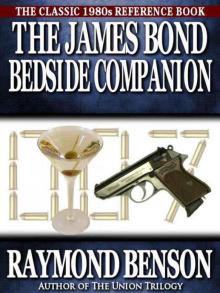 The James Bond Bedside Companion
The James Bond Bedside Companion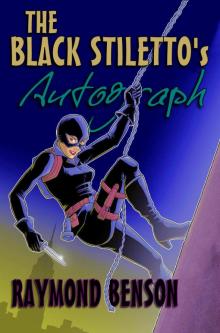 The Black Stiletto's Autograph
The Black Stiletto's Autograph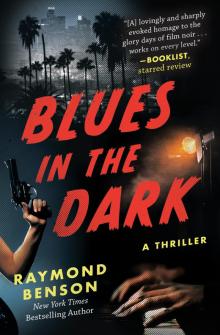 Blues in the Dark
Blues in the Dark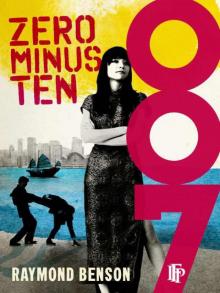 Zero Minus Ten
Zero Minus Ten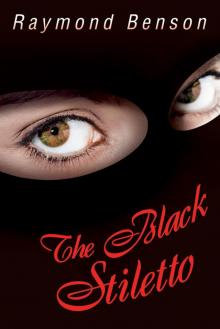 The Black Stiletto
The Black Stiletto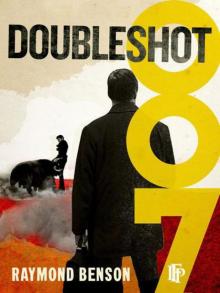 Doubleshot
Doubleshot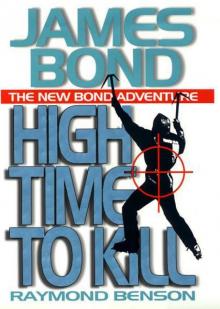 High Time To Kill rbb-3
High Time To Kill rbb-3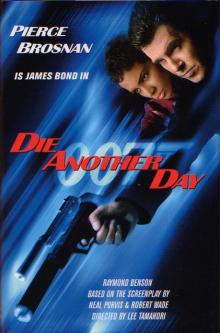 Bond Movies 07 - Die Another Day
Bond Movies 07 - Die Another Day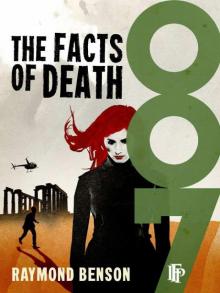 The Facts Of Death
The Facts Of Death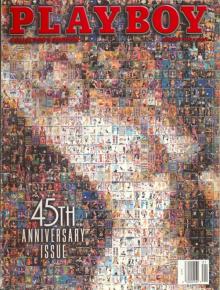 Midsummer Night's Doom
Midsummer Night's Doom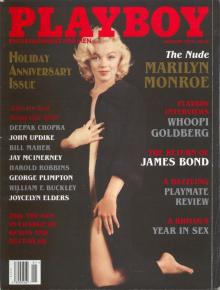 Blast from the Past
Blast from the Past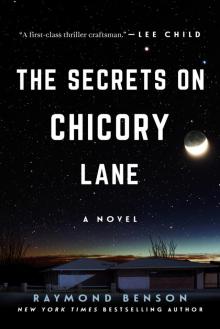 The Secrets on Chicory Lane
The Secrets on Chicory Lane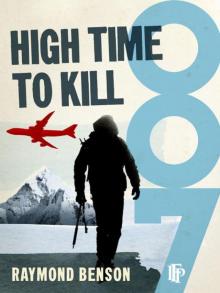 High Time To Kill
High Time To Kill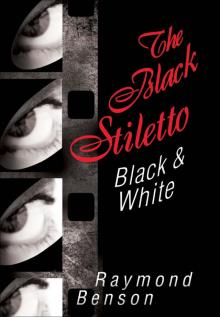 The Black Stiletto: Black & White
The Black Stiletto: Black & White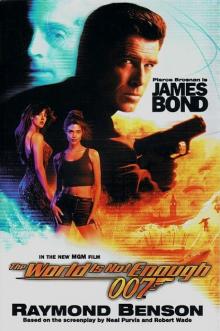 The World Is Not Enough jb-1
The World Is Not Enough jb-1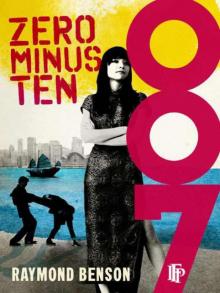 Zero Minus Ten rbb-1
Zero Minus Ten rbb-1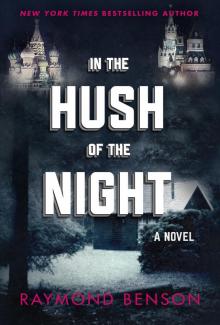 In the Hush of the Night
In the Hush of the Night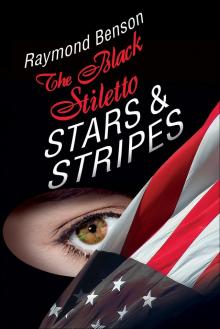 The Black Stiletto: Stars & Stripes
The Black Stiletto: Stars & Stripes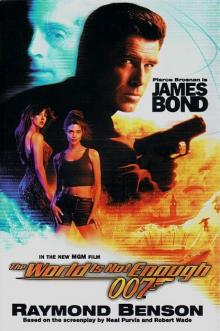 Bond Movies 06 - The World Is Not Enough
Bond Movies 06 - The World Is Not Enough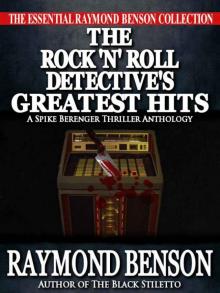 The Rock 'n Roll Detective's Greatest Hits - A Spike Berenger Anthology
The Rock 'n Roll Detective's Greatest Hits - A Spike Berenger Anthology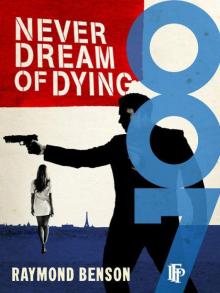 Never Dream Of Dying
Never Dream Of Dying